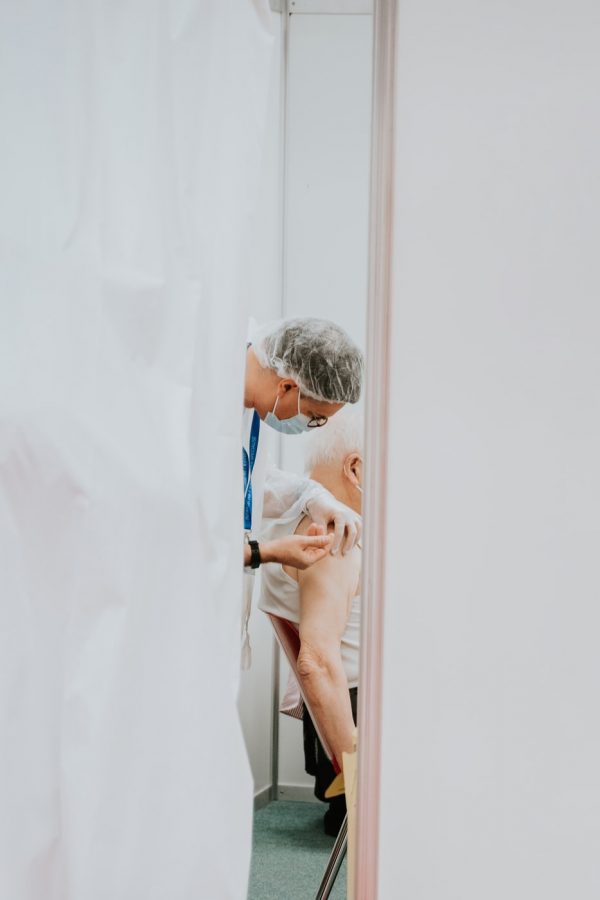COVID-19 vaccine means more than just protection against virus
More than 56 million people in the U.S. have now been fully vaccinated against COVID-19, according to NPR.
I did not think I would be overjoyed to get my COVID-19 vaccine. After all, it’s basically the same thing as your yearly flu shot. There’s an alcohol swab, a quick jab and a card with your name on it. And yet, something felt so special about the process of my first COVID-19 vaccine dose. Even though I received it at a tiny CVS in San Marcos, I felt like I was a part of something bigger than myself.
The process of getting my COVID-19 vaccine was not an easy one. As a high-risk individual, I qualified in the 1B group, and so I thought the process would be relatively straightforward. I was wrong. I first tried to schedule my vaccine appointment through Austin Public Health, but I ran into hurdles with their pre-registration system. They seemed to only accept specific diagnoses as evidence of belonging to the 1B category, a move that left many high-risk individuals with rarer diagnoses without a clear step forward. These scheduling problems are a concerning reality for many disabled and high-risk individuals across the United States. After Austin Public Health didn’t respond to my emails, I decided to try a local pharmacy. I was fortunate to get my first dose of the vaccine at a CVS.
After I scheduled my appointment, I felt an intense amount of relief. Like many high-risk individuals, my exposure to the outside world has been limited for my own wellbeing. Getting a vaccine means that I can change that. When I daydream about what I can do while fully vaccinated, my mind goes to the mundane. Farmers’ markets on a busy Saturday, spontaneous lake trips with friends, shaking hands with people instead of an awkward head nod. I also thought of my grandparents, who I haven’t seen in over a year out of concern for their safety. I get to see them soon because of our vaccinations.
I never thought a vaccine would make me feel connected to history. When I got my first dose, however, all I could think about was the people who made this vaccine possible. I couldn’t help but think that I was contributing to the legacy of every researcher who has worked tirelessly, every trial participant who was the first to put their body on the line, and I couldn’t stop thinking about the 500,000 people in America for whom the vaccine arrived too late.
On March 29, all adults in Texas will be eligible to receive the vaccine, and I implore you to get the vaccine if you are able. The sooner we all are vaccinated, the sooner we can move forward into a future where we can once again celebrate the mundane, be spontaneous and hug the ones we love the most.







